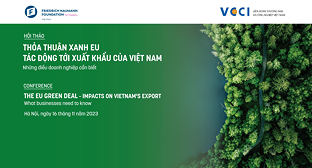Anti-Dumping Investigations Against China in Latin America
05/05/2011 12:00
Author: IBA Divisions Project Team
Supported by the IBA Trade and
Customs Law Committee and
the IBA Latin American
Regional Forum
Introduction
In the third quarter of 2009, World Trade Organization (WTO) Member States initiated 37 new anti-dumping (AD) investigations, a number roughly 68 per cent higher than the 22 cases of the second quarter of 2009, and nearly 43 per cent higher than the average of all new investigations since the first quarter of 2008.1 This increased resort to AD law in the wake of the financial and economic crisis is labelled by some as a sign of protectionism, and one of the countries that is affected the hardest by the high number of trade defence measures is China. The country has always been the prime global AD target, partly because it is still considered as a Non-Market Economy (NME) by most of the heavy-weight AD users, resulting in the application of special rules to its exports and, allegedly, higher dumping margins.
Given that Latin American countries, if taken together, initiate more AD investigations and adopt more final measures against China than any other jurisdiction in the world, it is surprising how little attention their approach to China has received in academic research. This report is intended to fill this gap, presenting a ground-breaking in depth study of the AD legislation and practice of Latin American countries with regard to Chinese exports. The research explores the special mix of legal, political and economic concerns around this issue with the aim of understanding the cause and effect of the different postures that cohabit in Latin America regarding this issue. The ever increasing influence and interest of China on the Americas prompts an analysis of the way AD investigations are unfolding and how they fit within the global AD pattern. The report is not concerned, however, with the controversial question of whether China deserves Market-Economy Status (MES), nor does it take a stance on the ongoing fundamental discussion of the economic soundness of AD measures in general.
The report begins with a brief revisit to some basic AD definitions in the WTO context, including a primer on the NME issue and the surrogate country method in the United States (US) and the European Union (EU). The section finishes with an overview of AD law relating to China, highlighting some problematic issues from a Chinese perspective. In the central part of the study, relevant aspects of the study, relevant aspects of the economic and political relations between China and Latin America are set out, before the AD legislation and practice of some selected Latin American jurisdictions is analysed, particularly with regard to AD investigations against China.
The main focus of this section is on the provisions that lay down criteria for the granting of MES or stipulate the conditions for Market Economy Treatment (MET) of individual companies in AD investigations. Throughout the report, statistical charts, case studies and anecdotal evidence from various jurisdictions will be used to support and illustrate the findings. The final section presents some concluding remarks that reiterate that this is a highly interesting topic of international trade law where political commitment weighs in disproportionate dimensions.
The findings of this paper are based on the IBA Divisions Project Team’s research among sources such as WTO legal texts, national AD laws, regulations and case-law, WTO and country-specific databases, and major academic publications in the area. They are corroborated and supported by the results of a survey and telephone interviews with legal professionals and AD authorities from eleven Latin American jurisdictions: Argentina, Brazil, Chile, Colombia, Costa Rica, El Salvador, Mexico, Nicaragua, Paraguay, Peru, and Uruguay.
Các tin khác
- The Dispute Settlement Crisis in the World Trade Organization: Causes and Cures (16/03/2018)
- Modification of trade defence rules regarding non-market economy costs and prices (23/02/2018)
- Research Paper: Options for Disciplining the Use of Trade Remedies in Clean Energy Technologies (03/08/2017)
- Addressing the rise of Trade Remedies against Environmental Goods (03/08/2017)
- Anti-dumping Retaliation - —A Common Threat to International Trade (15/11/2016)
 Home
Home
 About Us
About Us




















